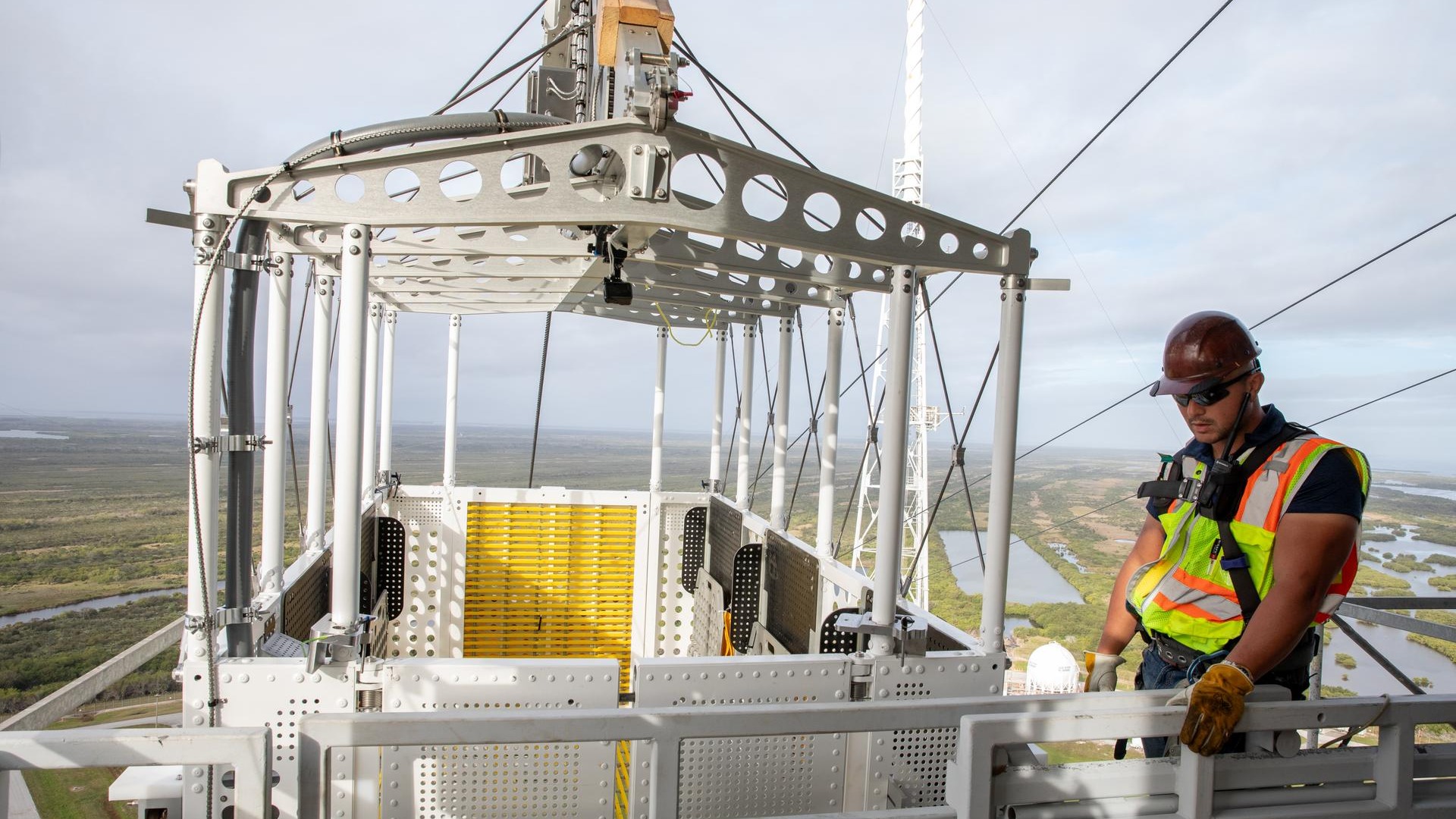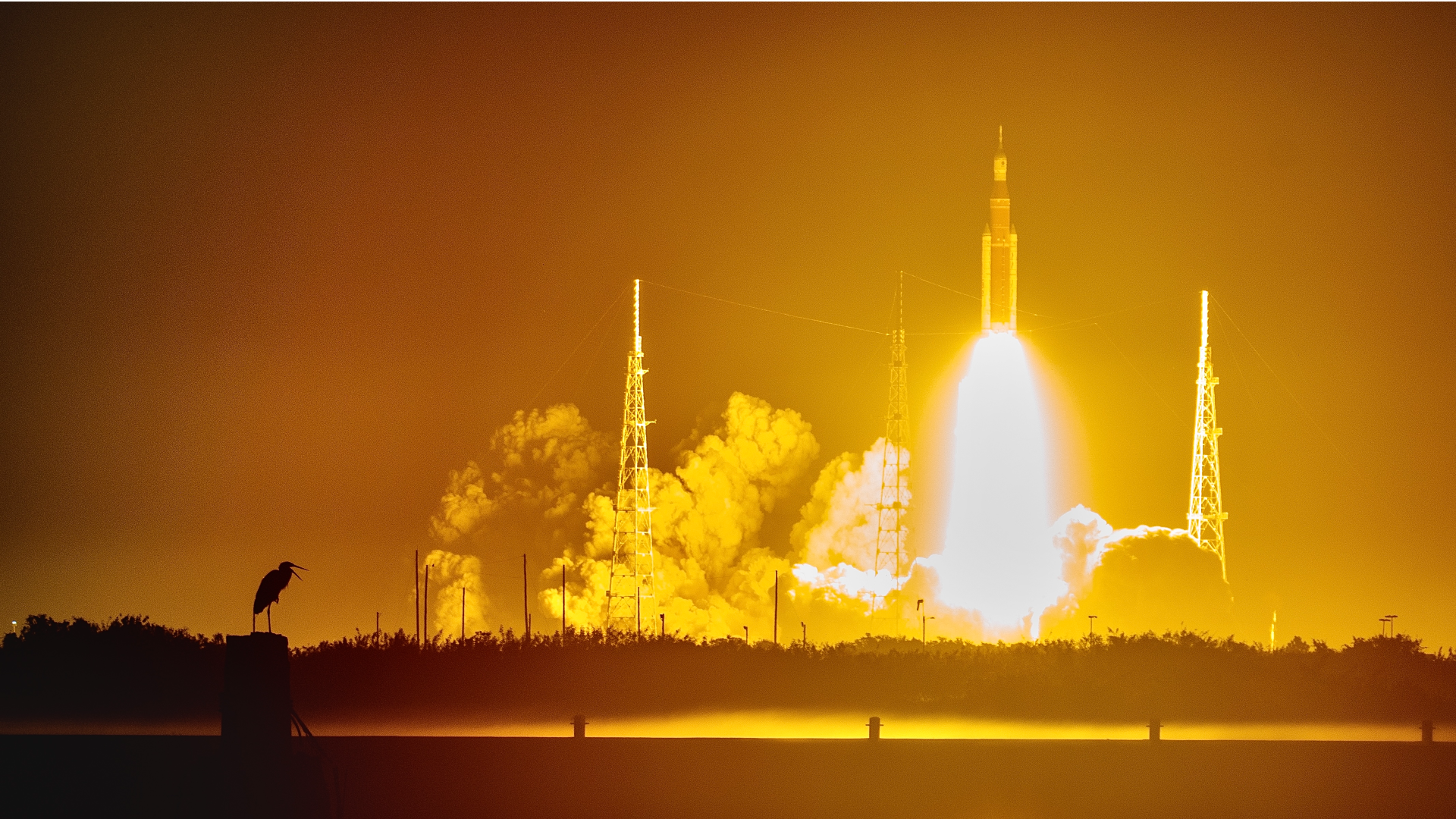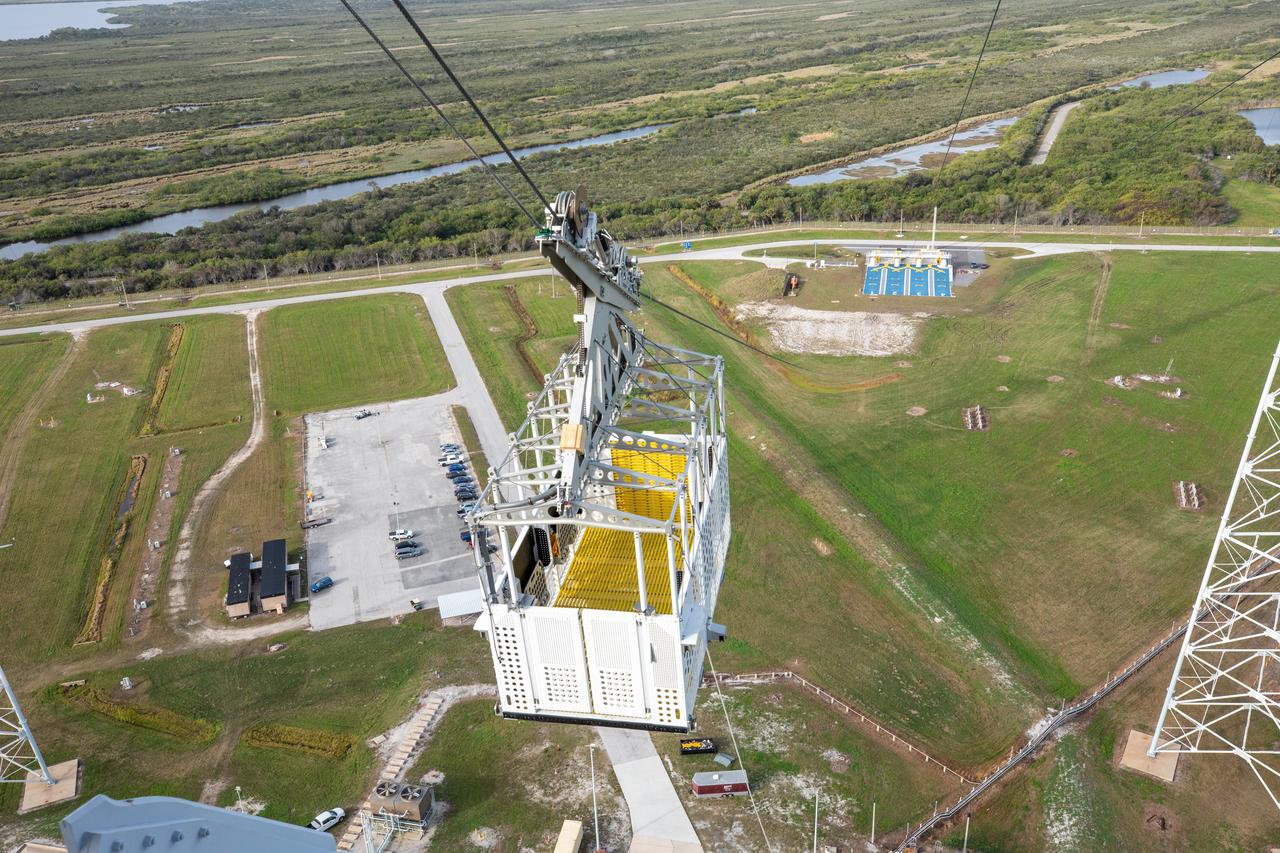Watch how NASA's Artemis astronauts could escape their rocket in an emergency (photos, video)
It's like a ski lift, but for a rocket.

The next moon astronauts have a rapid escape route, in case of emergency.
Should something go awry with the Space Launch System rocket supporting the Artemis 2 mission, an emergency exit via baskets will be at the ready at NASA's Kennedy Space Center to ferry the four astronauts to safety.
The system "will use a track cable which connects the mobile launcher to the perimeter area of the launch pad where four baskets, similar to gondolas at ski lifts," NASA officials wrote in a recent statement. "Once down at the ground level, armored emergency response vehicles are stationed to take personnel safely away from the launch pad to one of the triage site locations."
In September 2025 or so, Artemis 2 is expected to launch to the moon. On board will be NASA commander Reid Wiseman, NASA pilot Victor Glover (who will become the first Black person to leave low Earth orbit, or LEO), NASA mission specialist Christina Koch (the first woman to go beyond LEO) and Canadian Space Agency astronaut Jeremy Hansen (the first non-American).
Related: 'That's part of space exploration': Artemis 2 astronauts unfazed by moon mission delays (exclusive)
It's unlikely that an SLS launch will go awry, but NASA always has scenarios in place for backups. "We have four baskets that sit on the side of the mobile launcher tower at the same level as the crew access arm, the location where the crew enters the spacecraft," Amanda Arrieta, mobile launcher senior element engineer for NASA's exploration ground systems program.
Each basket in the system is SUV-sized and can carry five people, or 1,500 pounds (680 kg). "Each of these baskets will go down a wire," Arrietta said, with the release noting they will slide from 375 feet (114 meters) high down to ground level. "It's a wire rope system that connects to the pad terminus, an area near the pad perimeter where the baskets will land after leaving the mobile launcher tower."
Breaking space news, the latest updates on rocket launches, skywatching events and more!
Artemis 2 is part of the larger Artemis program with aims to land astronauts near the moon's south pole to take advantage of apparent water ice in the region, for human and machinery needs.
NASA isn't going it alone, as it has dozens of nations supporting under the Artemis Accords. While only a subset of those nations are directly contributing hardware for moon missions, others are on board to agree to a NASA-led vision of international and peaceful space exploration norms.

Elizabeth Howell (she/her), Ph.D., was a staff writer in the spaceflight channel between 2022 and 2024 specializing in Canadian space news. She was contributing writer for Space.com for 10 years from 2012 to 2024. Elizabeth's reporting includes multiple exclusives with the White House, leading world coverage about a lost-and-found space tomato on the International Space Station, witnessing five human spaceflight launches on two continents, flying parabolic, working inside a spacesuit, and participating in a simulated Mars mission. Her latest book, "Why Am I Taller?" (ECW Press, 2022) is co-written with astronaut Dave Williams.


